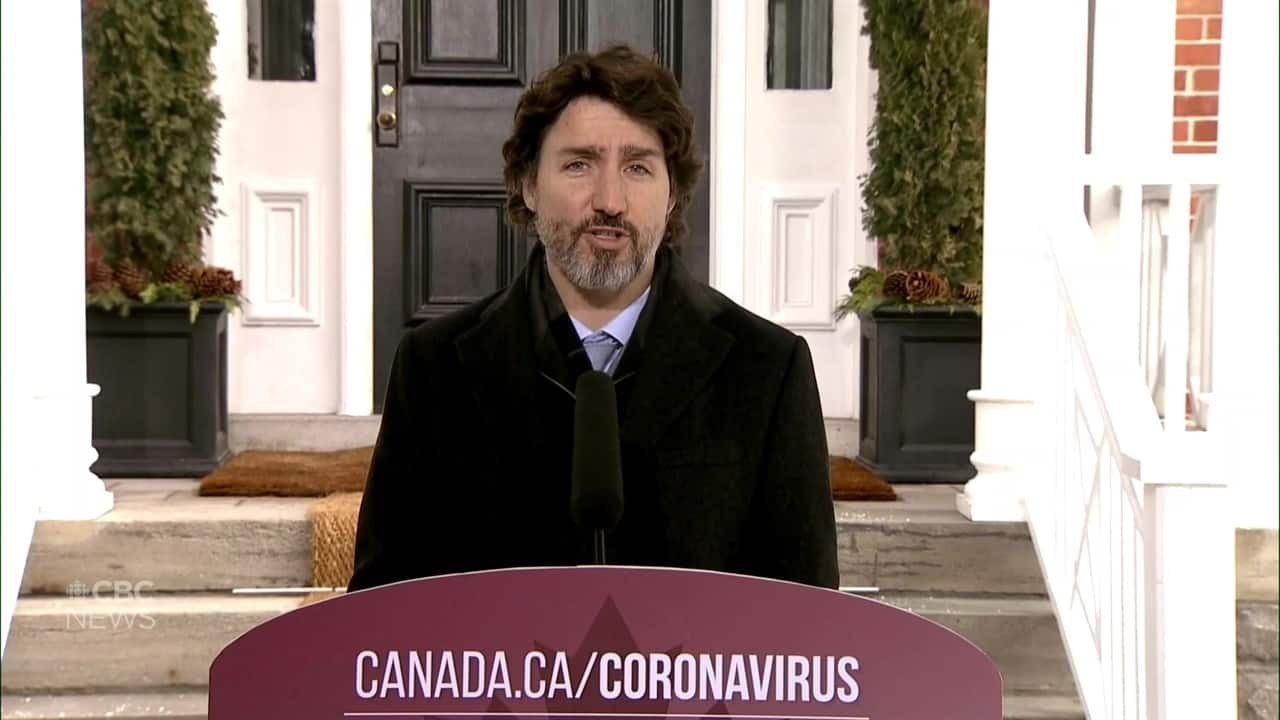Public Services and Procurement Minister Anita Anand said today that global pharmaceutical giant Pfizer will temporarily reduce shipments of its vaccine to Canada, further complicating the slow rollout of doses.
Anand said she was told last night that Pfizer will send fewer doses than expected because it is pausing some production lines at its facility in Puurs, Belgium, in order to expand long-term manufacturing capacity.
"This expansion work means that Pfizer is temporarily reducing deliveries to all countries receiving vaccines manufactured at its European facility, and that includes Canada," Anand told reporters at a public health briefing.
"Pfizer believes that by the end of March it will be able to catch up, such that we will be on track for the total committed doses for Q1," she added, referring to the first quarter of the calendar year.
Anand stressed that this is a "temporary reduction" and not a "stoppage," as some doses will still be shipped to Canada when some of Pfizer's manufacturing lines are idle.
"It's going to be temporary, it's not a loss, and we will make up those doses," she said, adding deliveries will be disrupted for "two or three weeks."
WATCH | Canada affected by Pfizer vaccine production delay in Europe:
Maj.-Gen. Dany Fortin, the military commander leading vaccine logistics, said Canada's allotment will be reduced by 50 per cent for four weeks.
He said the shipment next week of roughly 208,000 doses will proceed as planned, but shipments over the subsequent four weeks will be substantially smaller as a result of this manufacturing hiccup. Fortin said Canada will experience the "most profound impact" during the week of Jan. 25, when Pfizer will ship just a quarter of what had been promised originally. All told, the delivery of roughly 400,000 doses has been punted to a later date.
Fortin stressed that Pfizer's shipments will scale up after that point and "return to what we expected for end-February and onwards." The general has stated previously that Canada was expecting the delivery of 1.4 million Pfizer doses that month.
"As numbers increase, Pfizer indicated that they intend to offset the impact of their production dip," he said. "It will hurt in the short-term but ... the manufacturer is committed to the doses it has promised us."
A spokesperson for Pfizer Canada said the delay will allow the company to significantly scale up its manufacturing operations and pump out up to 2 billion vaccine doses this year — up from the previous target of 1.3 billion.
The company said there will be "fluctuations in orders and shipping schedules" as it works to increase production volumes.
"As part of the normal productivity improvements to increase capacity, we must make modifications to the process and facility. Although this will temporarily impact shipments in late January and February, it will provide a significant increase in doses available for patients in late February and March," the spokesperson said.
Other countries supplied by Pfizer's European facility provided some rough estimates Friday of how deliveries will be affected as Pfizer retools.
The Norwegian Institute of Public Health said it expects deliveries to be reduced by as much as 20 per cent over the coming weeks. Lithuania said it was told its supplies would be halved until mid-February.
"The manufacturer told us the cuts are EU-wide," Lithuanian health ministry spokesperson Vytautas Beniusis told Reuters.
Anand said the federal government still expects to receive roughly four million doses of the Pfizer product in the first three months of this year. Moderna is expected to deliver another two million doses of its vaccine.
Pfizer also has a plant in Kalamazoo, Mich., but all of Canada's doses are being shipped from the company's European operation.
"While both our U.S. and European sites are approved by Health Canada to supply the Canadian market, the supply to Canada has been allocated from our Puurs site in Belgium. For the time being, that has not changed," the Pfizer spokesperson said.
'Bumps along the way'
Prime Minister Justin Trudeau sought to assure Canadians today that the "temporary" delays won't derail the government's long-term goal of getting everyone who wants a shot vaccinated by the end of September.
He also said he doesn't expect the manufacturing pause to "change our second quarter goals. Canada must still get ready for the 'ramp up' phase in Q2."
Fortin has said the country is expecting delivery of about one million vaccine shots each week starting in April.
In the spring, Canada will shift from phase one of the vaccine rollout — immunizing particularly vulnerable people, such as long-term care home residents, some Indigenous adults and health care providers — to wider distribution among the general population.
Trudeau said the government always anticipated some "bumps along the way," given the unprecedented global demand for vaccines.
WATCH: Trudeau says Pfizer's reduction is 'just temporary'
"This kind of issue is out of our hands and that's why we pursued an aggressive procurement strategy in the first place," Trudeau said, adding Canada is not entirely dependent on Pfizer for shots.
Other promising vaccine candidates, such as those from AstraZeneca and Johnson & Johnson's pharmaceutical division, Janssen, are currently being reviewed by regulators at Health Canada.
https://news.google.com/__i/rss/rd/articles/CBMiWWh0dHBzOi8vd3d3LmNiYy5jYS9uZXdzL3BvbGl0aWNzL3BmaXplci10ZW1wb3JhcmlseS1yZWR1Y2luZy12YWNjaW5lLWRlbGl2ZXJpZXMtMS41ODc0NjQ10gEgaHR0cHM6Ly93d3cuY2JjLmNhL2FtcC8xLjU4NzQ2NDU?oc=5
2021-01-15 19:17:00Z
CBMiWWh0dHBzOi8vd3d3LmNiYy5jYS9uZXdzL3BvbGl0aWNzL3BmaXplci10ZW1wb3JhcmlseS1yZWR1Y2luZy12YWNjaW5lLWRlbGl2ZXJpZXMtMS41ODc0NjQ10gEgaHR0cHM6Ly93d3cuY2JjLmNhL2FtcC8xLjU4NzQ2NDU


Tidak ada komentar:
Posting Komentar